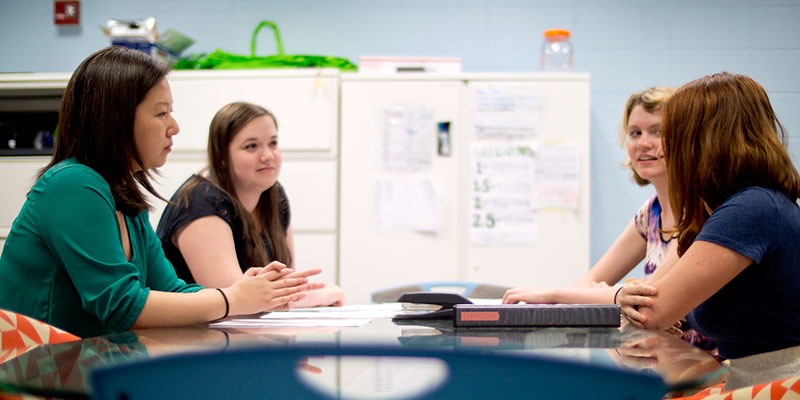by Hoang Pham, PhD
Hoang D. Pham is a third-year Michael Scandling PhD student in the Teaching, Curriculum and Change Department at the Warner School of Education. He enrolled in the program directly after obtaining his Honors BA in psychology from the University of Rochester. Upon graduation, he was awarded the Herbert L. Zimmer Research Prize for his thesis work and dedication to the department. He currently researches topics related to education access and (in)equality.
Why are pre-college programs advantageous for a student?
Pre-college programs are offered during the summer when students are off from school. These programs can be beneficial to keep students’ intellectually growing minds academically engaged when they are away from school. The program at the University of Rochester, and others like it, enable students to engage in a variety of experiences, such as hands-on learning, in courses that they can expect once they are in college. Equally important is the opportunity to meet students who come from across the country and around the globe. These aspect of pre-college programs enable students to engage academically across communities of learners, cultures, and academic potentials. In my humble perspective, to experience the offerings of diversity is the essence of learning, and pre-college programs do just that.
What’s the most interesting part of your class and topics you hope to cover in your class?
It is difficult to pinpoint the most interesting part of the course because all aspects of it intertwine to make students’ learning of intelligence worthwhile.
In my course, Research 101: Intelligence as a Social Construct, we explore the concept of intelligence in its social, academic, and political forms. Initially, we explore what the research discipline has contributed to the field. During that phase of the course, we learn about the history of intelligence. In the second phase, we develop a research question and research methods that we use to carry out an investigation. In the past, students have developed a mix-method study involving qualitative techniques and statistical regression analysis to study their peers’ perception of intelligence. For that cohort, their goal was to contribute to the literature a limited understanding of adolescents’ views of the concept.
What is most fascinating to me is the teamwork that students exhibit to complete the project during such a short period. A past cohort had divided into two parties with one party taking up the interviewing and transcribing role, while the other party developed the point-and-click survey to collect Likert-scaled data for statistical analysis. To convey their findings, I guided them through the academic writing process of drafting an introduction, methods, findings, and conclusion section that together compose their academic publication. Of course, the course was over without the chance to publicly defend their study in front of their peers and Pre-College Program staff. My intention was to provide for the students a public platform to take ownership over their original contribution, so I rigorously challenged them with questions daily to prepare them for all types of questions that they could expect.
My fondest memory of the course tends to be from the debates, where hypothesis testing and interpretation of findings never seemed to end. To me, debating over ideas is a sign of intellectual engagement at the individual and group levels. In fact, students even debated about authorship on their scholarly paper based on contribution. These activities are constantly on-going in the academic world, and I am always glad to instruct and learn from future scholars!
What meaningful connections have you had with students that make classes like these worth it?
I find the opportunity to mentor young scholars to be particularly fulfilling. At times, it has even taken me by surprise that my students grew into researchers by the end of the two-week course. Particularly satisfying was taking some time at the beginning of each class to respond to their inquiries about college or applying to college. In the past, students were interested in meeting a researcher from the Medical Center so I helped make that happen for them. We invited Adan Baccera, a PhD candidate in epidemiology, to talk about his work. It was also an opportunity for our guest to learn about the students’ work as well. In this manner, the meaningful connection was not only between the students and myself as their instructor, but it also extended to other members of the research community at the University of Rochester.
What excites you most about this class and Pre-College Programs?
This course is intended to be a hands-on class for students and run by students. My role is intended to facilitate their learning through the entire course. I have found that, both from research and my own experience of instructing the course, students tend to grow intellectually the most in this manner. As they realize that they must take ownership and initiative over their own project, their reasoning is reflected at all levels of the project and its components (the research, paper, presentation aspects). Even for students who joined the class with uncertainty regarding their exposure to research skills fared well with their peers!
View PowerPoint: Predicting Perceptions of Intelligence
Learn more about this Pre-College Programs course and others!


